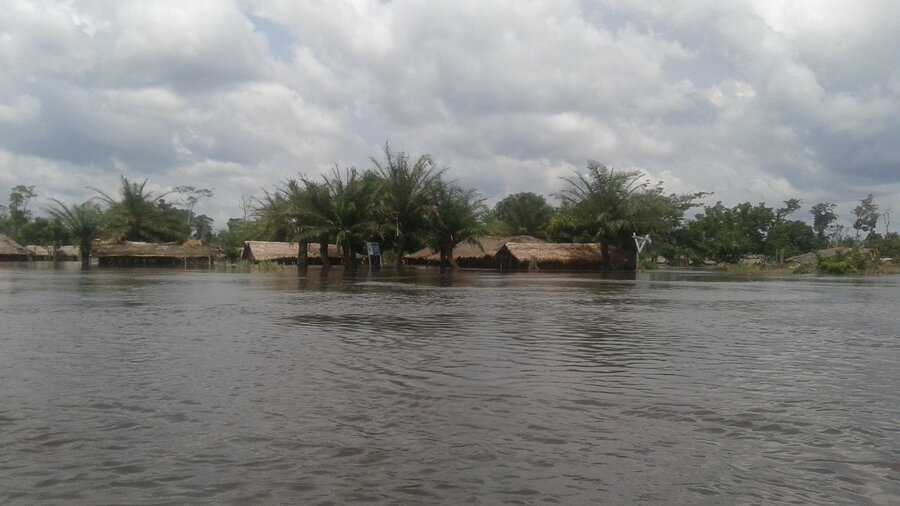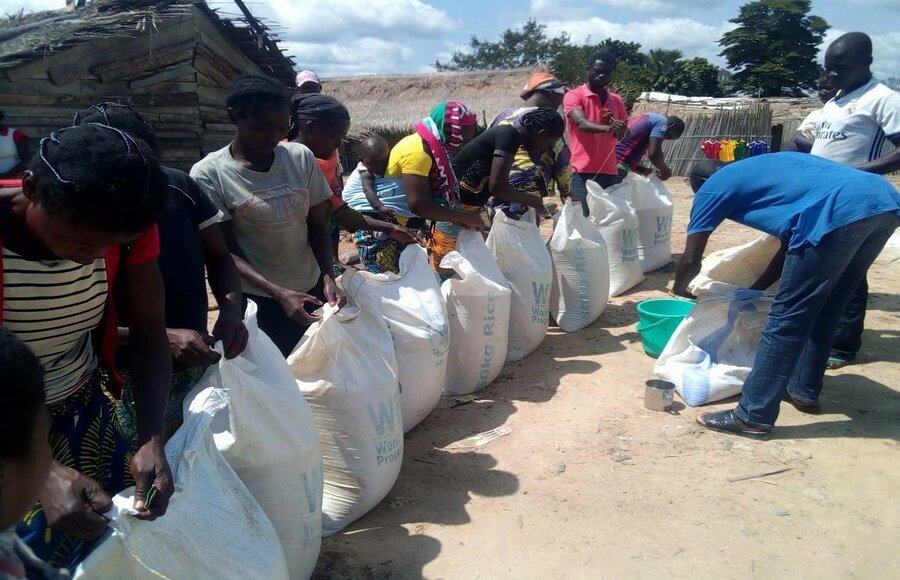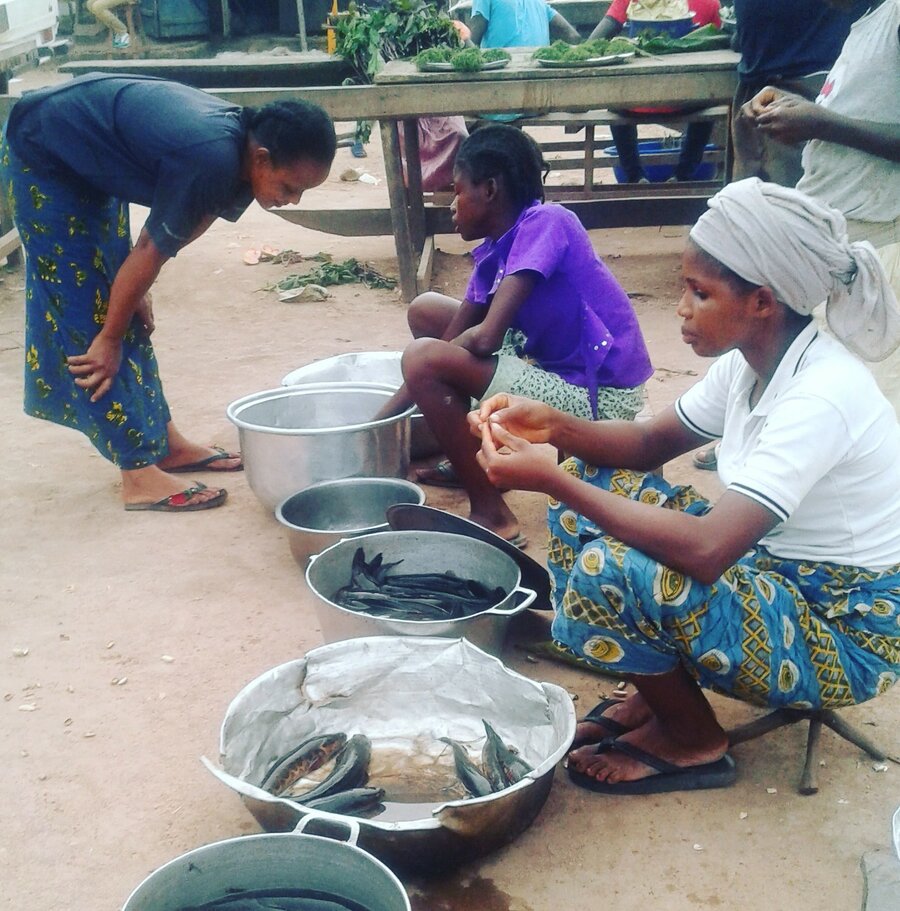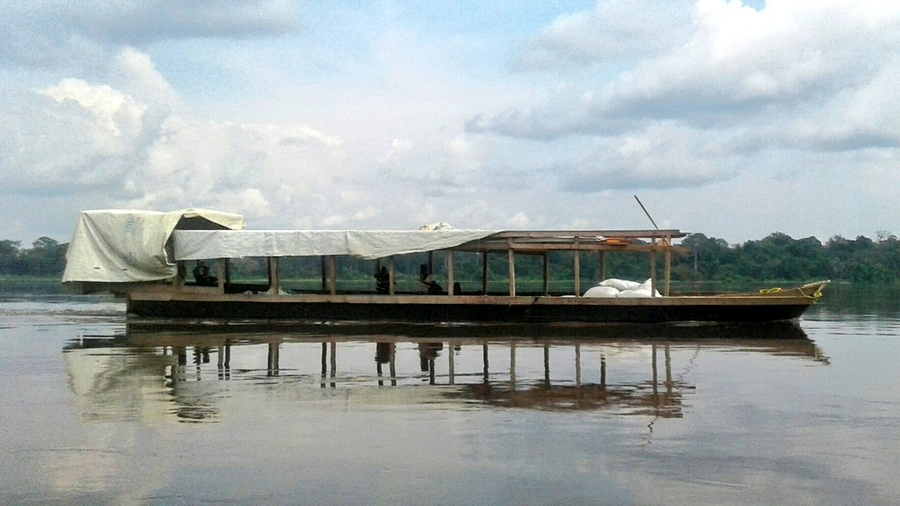Congo weathers treacherous floods

"We need help, now. We have been flooded out of our homes!"
As soon as I step out of the boat, Jean-Rivel, an energetic elder, greets me with a torrent of information about the disaster that has just hit his community. Speaking with the clear, assured cadences of a retired military officer, he explains how rising waters have thrown lives into disarray.
I am in the region of Likouala to understand the situation as WFP begins to respond.
Exceptionally heavy rains hit the North of Congo during October — 25 people have lost their lives in the Équateur region. As a result the Ubangi river and its tributaries flooded, displacing an estimated 50,000 in the remote Likouala region. The waters have been above flood stage for weeks. According to USAID, the past 90 days in Africa has been "one of the wettest rainfall periods recorded".

It's the worst flooding in the Ubangi River valley since 1999. (The last big flood before that was in 1962.)
The only way to reach affected communities is by boat. Soon after setting off from Impfondo, the district capital, impacts are evident. Village after village is underwater, deserted. Straw roofs are blown off. Here and there, the imposing tall trees bordering the Ubangi have collapsed under their own weight into the dark waters.
Lives turned upside down
In Jean-Rivel's town, most of the population has moved inland to escape the rising waters. In order to reach them, we switch to canoes and cross a stretch of marshland. We start hearing voices. Families are in shelters built out of palm fronds, each on a small mound of higher ground.
There is no clean water available, and the flood has caused toilets to overflow. "I am seeing a lot of diarrhea cases in children," says Germaine, the head of the health centre, who fears a peak in malaria as the waters recede.

"When the flooding started in October, we tried to dig up our cassava as fast as we could," says Jean-Rivel. "But the bulk of our crop has been underwater for weeks and is now rotten. The limited cassava stocks we have won't last beyond January. We don't know how we will cope after then," he adds.
The salvaged cassava is moldy, but people have no choice and prepare it anyway. The resulting sour cassava has a worrying grey-purple hue and is hard, both on the palate and on the stomach.
Likouala is known for its plantain. Along the river, plantain groves are yellowed or brown, choked by the standing water. The papaya trees have lost their leaves.
At the market in Betou, the women who usually sell cassava flour by the bag are nowhere to be seen. Only small quantities are available, a sign of scarcity for this essential food. Fish are hard to catch with waters so high, sold by only a few women in the market.
Help on the way
We stop in a riverside village built on higher ground than surrounding villages. WFP and its NGO partner are there providing food to hundreds of people from all around.
One of the challenges is managing the crowd. People line up in the hope of receiving a ration of rice, peas, oil and salt. I see people who have received food cook it on the spot, using whatever pots they've salvaged from the waters. They will take their food home by canoe.

Clementine, 51, mother of 10 children, is among the people receiving food assistance. "In my hometown of Mabelou", she says, "we worked day and night to build a levee to keep the waters at bay, but it was in vain."
She adds: "I lost my house, my belongings and crops. When I came back home with my ration of rice, beans and oil, the children could not believe their eyes: we had not had a decent meal in days."
Because some of the roads have been washed away by the rains, WFP uses boats to ship food to communities. More help is on the way. A river barge is being loaded in Brazzaville with over 700 tons of food, enough to feed the flood-affected population for a month. The team in Betou will be able to help many more people as soon as next week.

